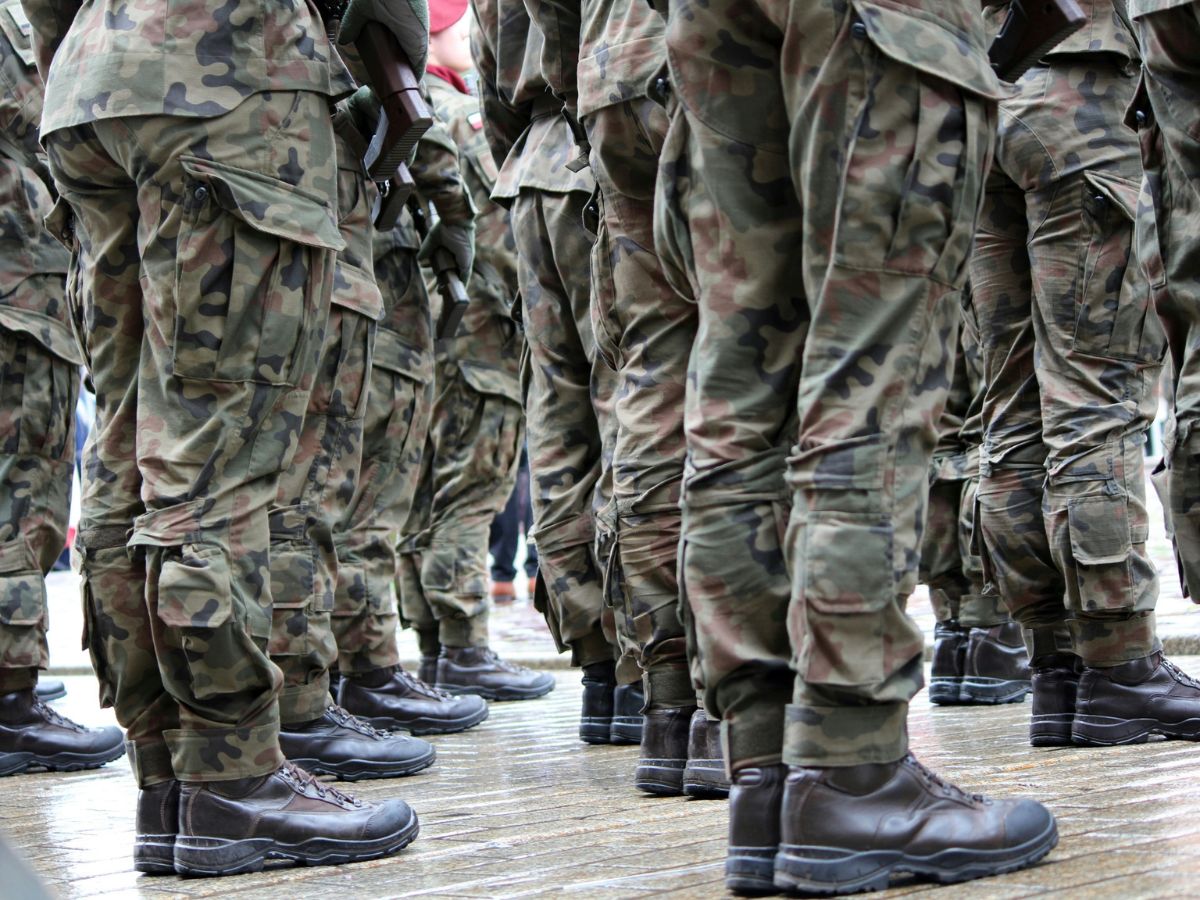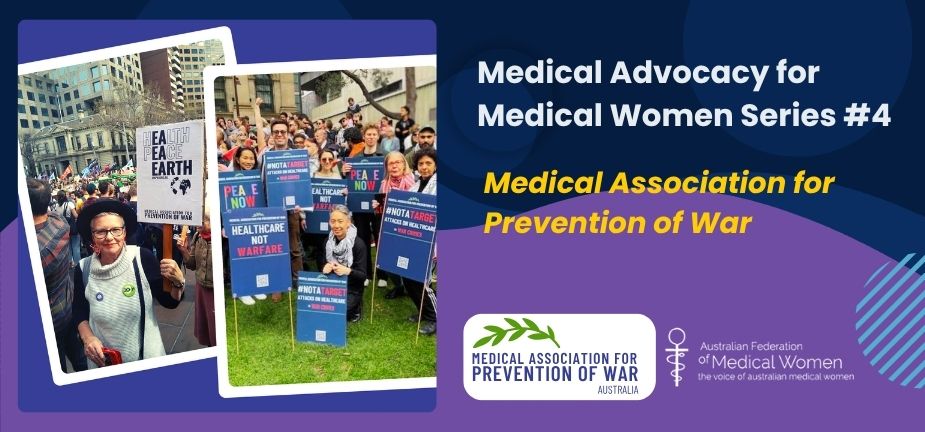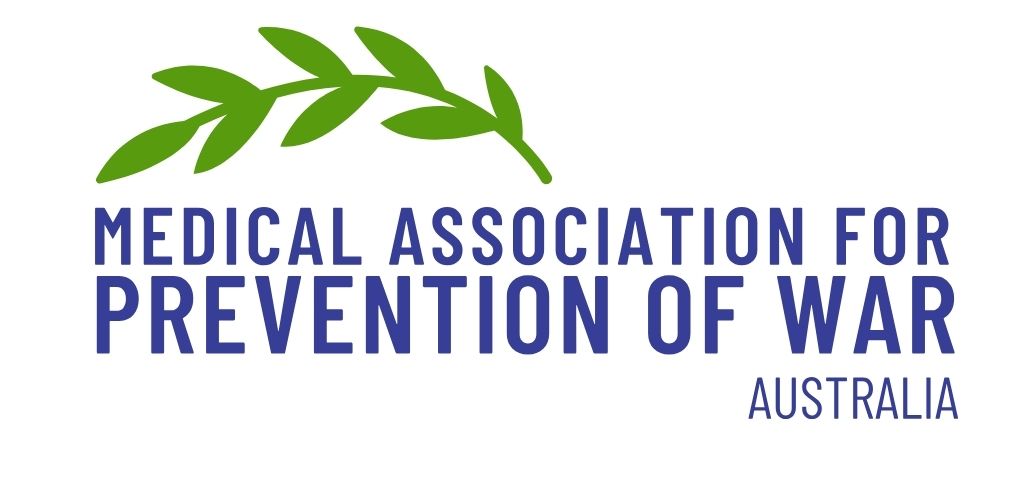This fortnightly series spotlights organisations where doctors are driving social change beyond clinical practice, tackling issues like health inequity, climate resilience, refugee health, and mental health reform. These profiles highlight how medical professionals are using their skills, credibility, and compassion to advocate for systemic change. Each instalment offers tangible ways to get involved – through action, education, or amplification – reminding us that advocacy isn’t just for “other” doctors. It’s for all of us.
Keeping with the theme from the last instalment, this week we take a look at the Medical Association for Prevention of War.
Medical Association for Prevention of War: When Healthcare Confronts the Ultimate Harm

Origins and Mission
Founded in 1981, the Medical Association for Prevention of War (MAPW) has been a powerful voice for peace for over four decades. Born from the recognition that war represents the ultimate public health crisis, MAPW embodies a simple yet profound principle: healthcare professionals have a unique responsibility to prevent the greatest harm of all.
MAPW’s work is deeply rooted in medical ethics and directly responds to the World Health Assembly resolution 36.28, which recognises that “the role of physicians and other health workers in the preservation and promotion of peace [is] the most significant factor for the attainment of health for all.” Indeed, the WHO’s Ottawa Charter for Health Promotion identifies peace as a fundamental determinant of health, alongside shelter, education, and food.
The Health Imperative for Peace
War shatters health systems long before and long after bombs fall. Systematic reviews show that populations in conflict situations experience significantly increased incidence of both communicable and non-communicable diseases. Conflict destroys vital health infrastructure, decimates medical workforces, displaces millions, and interrupts essential supply chains. Even when the fighting ceases, the breakdown of social structures that maintain health and wellbeing creates consequences that ripple on for generations.
MAPW’s international credibility is substantial: they founded the International Campaign to Abolish Nuclear Weapons (ICAN) in 2007, which was awarded the Nobel Peace Prize in 2017. As the Australian affiliate of the 1985 Nobel Peace Prize Laureate, International Physicians for the Prevention of Nuclear War (IPPNW), MAPW operates within a global network of tens of thousands of health professionals across over 60 countries.
Core Campaigns and Initiatives
MAPW doesn’t just focus on the obvious threat of nuclear weapons, they take on what they call the entire “nuclear chain”, essentially addressing the problem from uranium in the ground to waste that outlasts civilisations.
Nuclear Weapons Abolition
MAPW’s flagship campaign focuses on the Treaty on the Prohibition of Nuclear Weapons (TPNW), which is part of the ICAN. While the UN adopted the TPNW in 2017 and it became international law in 2021, Australia has yet to ratify the Treaty.
Their approach is unapologetically medical: there is no meaningful medical response to nuclear weapons use. As healthcare professionals, this puts us in an impossible position – we can’t treat what we can’t survive.
MAPW’s campaign also includes practical elements like their “Quit Nukes” initiative, which takes a page from the anti-tobacco playbook, pressuring institutions to divest from nuclear weapons companies. If stigmatisation worked against Big Tobacco, why not Big Bombs?
Nuclear Waste
One of Australia’s urgent challenges is managing long-lived intermediate-level nuclear waste (ILW), which must be isolated from people and the environment for 10,000 years. Think about that timeframe: we’re talking about waste management systems that need to outlast all of recorded human history.
MAPW successfully challenged the government’s plan to establish a national radioactive waste management facility on Barngarla land in South Australia, exposing inaccurate risk assessments, misleading government information campaigns, inflated employment promises and violations of Indigenous consent.
AUKUS: The Nuclear Submarine Problem
Australia’s AUKUS agreement adds another layer of concern. We’re about to generate naval nuclear waste in a country with no nuclear industry, no domestic regulatory expertise, and a decades-old nuclear-free policy. MAPW argues this is nuclear power through the back door, creating long-term waste management problems without appropriate public consultation or safety frameworks.
Other Focus Areas: A Comprehensive Approach to Peace
MAPW’s peace advocacy doesn’t stop at nuclear issues. They’ve identified how militarisation touches everything from climate policy to your children’s science textbooks.
Climate and Military Emissions
The world’s militaries pump out over 5% of global greenhouse gas emissions, yet somehow they’re exempt from the reporting rules and reduction targets everyone else has to follow. MAPW advocates for demilitarised responses to climate change, challenging the assumption that environmental crises require military solutions.
Human Rights and Justice
MAPW takes a strong stance on human rights protection in conflict zones. Internationally, they criticise Australia’s inadequate response to protecting civilians and healthcare workers in Gaza, despite there being credible evidence of war crimes. Domestically, they push for accountability following the publication of the Brereton report on Australian war crimes in Afghanistan, advocating for transparent investigation, prosecution of perpetrators, and victim compensation.
The Military-Industrial Complex
MAPW highlights how government investment in weapons companies fuels an export-oriented arms trade, weakening global peace and eroding human rights. Poor oversight, national security loopholes, and lacklustre enforcement of international treaties (like the Arms Trade Treaty) allow Australian arms exports to contribute to instability and human rights violations abroad.
One of MAPW’s most innovative campaigns addresses a subtle but critical public health concern: the intrusion of weapons companies into STEM education. Their research identified numerous Australian educational programs linked to global weapons corporations. They argue that this influence leads to the militarisation of society and prioritises corporate agendas over pedagogical interests, similar to harmful influence once wielded by the tobacco industry. Their work advocates for pedagogically-driven rather than commercially-driven educational policy.
What Can I Do?
There are several meaningful ways to engage with MAPW, regardless of your career stage or availability:
- Join MAPW: Become a member to support peace and disarmament
- Participate in Activities: Attend state branch events or lead campaigns, from nuclear abolition to whistleblower protection.
- Expand your reach: As a MAPW member, you’re also part of IPPNW, with access to global activities and networks.
- Educate Yourself: Subscribe to MAPW’s newsletter or explore their rich library of policy papers and educational tools that translate complex geopolitical issues into health frameworks
- Amplify their Message: Follow and engage with MAPW’s channels on Facebook, Instagram and/or Twitter/X.
- Donate: Your financial support helps to sustain MAPW’s research and advocacy work
Your Reflection
As a medical woman, how do you reconcile the healer’s role with the knowledge that political decisions in war, arms trade and nuclear investment can undo generations of public health progress in a single stroke? How might your voice, your skills, or even your silence contribute to shaping Australia’s stance on peace and disarmament?
References:
Marou, V., Vardavas, C. I., Aslanoglou, K., Nikitara, K., Plyta, Z., Leonardi-Bee, J., Atkins, K., Condell, O., Lamb, F., & Suk, J. E. (2024). The impact of conflict on infectious disease: a systematic literature review. Conflict and health, 18(1), 27.
https://doi.org/10.1186/s13031-023-00568-z
Mohammadi, M., Jafari, H., Etemadi, M., Dalugoda, Y., Mohtady Ali, H., Phung, H., Ahmadvand, A., Dwirahmadi, F., Barnes, P., & Chu, C. (2023). Health Problems of Increasing Man-Made and Climate-Related Disasters on Forcibly Displaced populations: A Scoping Review on Global Evidence. Disaster medicine and public health preparedness, 17, e537.
https://doi.org/10.1017/dmp.2023.159
Parkinson, S., & Cottrell, L. (2022). Estimating the military’s global greenhouse gas emissions.
Photo Credit:
1. Photo from the MAPW website
2. Photo by Dario Daniel Silva on Unsplash
Others in the Series
Dr Madhura Naidu is an Intensive Care Registrar and trainee with the College of Intensive Care Medicine with over a decade of multidisciplinary clinical experience spanning ICU, anaesthesia, surgery and palliative care. She brings a comprehensive clinical skillset and a systems-based perspective to critical care, grounded in evidence-based, compassionate and patient-centred practice.
She is particularly passionate about the strategic integration of AI and digital health in medicine as tools to streamline workflows, empower clinicians, and improve patient outcomes in real-world settings.
Beyond the bedside, Madhura is an intersectional feminist and long-time advocate for gender equity and clinician wellbeing. She currently serves as Vice-President of the Australian Federation of Medical Women (AFMW) — the only national organisation exclusively representing the women and non-binary medical workforce — following a three-year tenure as President of the Victorian Medical Women’s Society.
A lifelong learner, Madhura is driven by adaptability, innovation, and building efficient, future-focused solutions across clinical, organisational and digital health settings.


